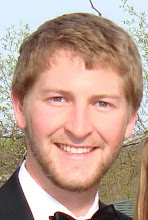After about 2 hours we turned off of the main road onto a dirt trail, which we followed for another 45 minutes. We had entered another mountainous
 les and cousins, and any neighbors who learned he was coming. They brought us into the family's wooden home, with its dirt floors, where they circled around us and sang a Swahili song of thanksgiving for our coming. Then they each prayed to thank God for bringing all of us there safely, and told us that we were welcome anytime! Duncan's father is the only one for miles around that speaks English, and he really enjoyed telling us all about their lives and Duncan's childhood. Duncan's mother brought out a meal she had prepared for us -- an entire cooked chicken in a pot, potatoes and beans, tortilla-like chapati, and the ubiquitous chai tea. After eating, Duncan's dad took us proudly around their property, showing us the wood and mud kitchen, the acre of corn and coffee plants, the foundations of the stone house Duncan is helping to build, the neatly labeled outhouses, and the tiny, one-room wooden church that he preaches in every sunday for the community. The whole time, children from around the area ran and played with a soccer ball made from plastic bags, and we listened to the sound of goats and chickens in their pens.
les and cousins, and any neighbors who learned he was coming. They brought us into the family's wooden home, with its dirt floors, where they circled around us and sang a Swahili song of thanksgiving for our coming. Then they each prayed to thank God for bringing all of us there safely, and told us that we were welcome anytime! Duncan's father is the only one for miles around that speaks English, and he really enjoyed telling us all about their lives and Duncan's childhood. Duncan's mother brought out a meal she had prepared for us -- an entire cooked chicken in a pot, potatoes and beans, tortilla-like chapati, and the ubiquitous chai tea. After eating, Duncan's dad took us proudly around their property, showing us the wood and mud kitchen, the acre of corn and coffee plants, the foundations of the stone house Duncan is helping to build, the neatly labeled outhouses, and the tiny, one-room wooden church that he preaches in every sunday for the community. The whole time, children from around the area ran and played with a soccer ball made from plastic bags, and we listened to the sound of goats and chickens in their pens.Seeing this part of Kenya was such an eye-opening experience. Like most rural areas in third-world or developing countries, it is striking how happy people are with so little. All of these people's lives depend on the rains and their crops, but their only comment on the current drought is that the Lord will provide a way. The happiness on their faces as they talk about the tiny homes they have built, or the decorations they have made for their church, makes so much of the frustration and unhappiness I see in more "developed" places seem silly. There is so much beauty in the simple, uncomplicated existence that these people have, shaded in flowering trees and looking out on a view that some people would pay millions for.
One part of this experience that was new for me was the relational connection that I now have with these people. I have seen this kind of existence in Central America and Asia, but never when I really knew more about the individuals than what I could see. This time, I have become friends with Duncan and learned many things about his life and his background. I knew about his experience at seminary, the life he now leads with CARE for AIDS, where he drives a car every day, uses a computer, and travels to America. I didn't know the story of his childhood -- how we would run 10 miles every morning to school for years, how his family had no money to spend on anything but food and school. I heard stories of when Duncan would wake up at 4am, ride a bike uphill for 3 hours to purchase fresh vegetables, carry them downhill for 25 miles to sell them at a profit in the valley, and then bike back uphill to return to his house at 9pm. Doing this work for 4 years gave him the money he needed to travel to Nairobi and start attending seminary. Even there, he had no money to pay for more than the first semester, but he trusted God's provision, and his incredible personality and love brought him in touch with missionaries who paid for his schooling and set him on the path of ministry that he continues today. It seems like every day I am finding out more and more sacrifices and stories of faith that Duncan, along with all of the other Kenyans I have been around, have experienced to bring them to the life they thank God for today. I wish all of their stories could be told in full, and I am so thankful for the opportunity to see them firsthand!
 A handpainted message over the front door of a house outside Nakuru. The walls are wood and mud covered with cow dung, the floor is dirt, the rains are not good, and the people are thankful...praise God!
A handpainted message over the front door of a house outside Nakuru. The walls are wood and mud covered with cow dung, the floor is dirt, the rains are not good, and the people are thankful...praise God!






...all the time & that is His nature...
ReplyDelete